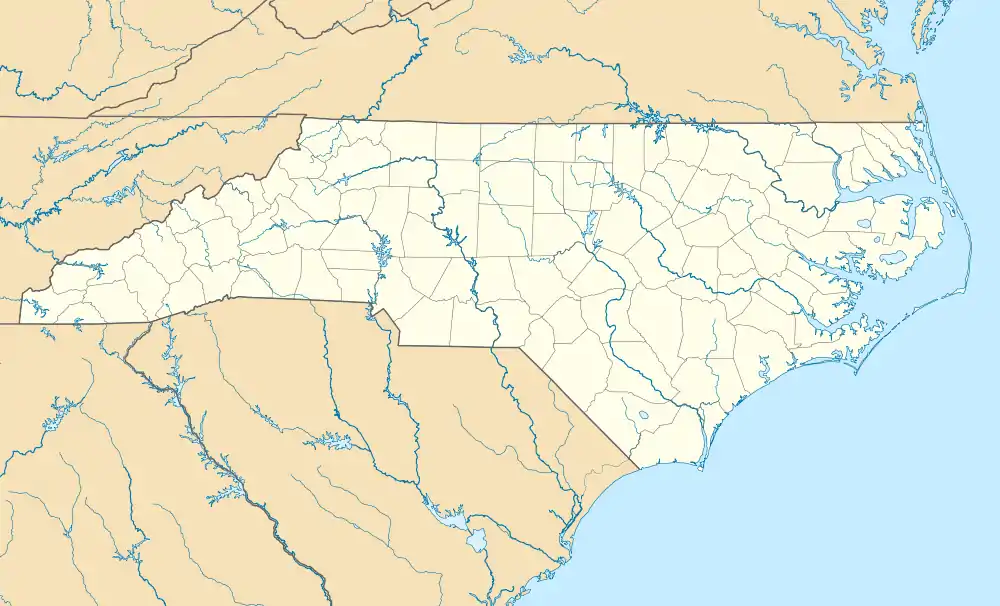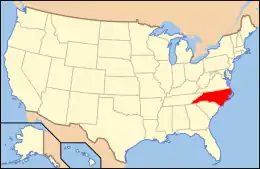Smith-McDowell House
The Smith-McDowell House is located in Asheville, North Carolina. It is the city's first mansion and oldest surviving house, and the oldest brick structure in Buncombe County.[2]
Smith-McDowell House | |
 | |
  | |
| Location | 283 Victoria Rd., Asheville, North Carolina |
|---|---|
| Coordinates | 35°34′23″N 82°33′18″W |
| Built | 1845 |
| NRHP reference No. | 75001243 [1] |
| Added to NRHP | August 1, 1975 |
The house was constructed in the 1840s for James McConnell Smith. His daughter Sarah Smith-McDowell and her husband, William Wallace McDowell bought the house after her parents died.[3] It is a blend of architectural styles dating from its original 1840 construction and additions completed in the late 19th and early 20th centuries. The floor plan is typical of Adam style, better known as Federal style in America.[2]
It is a double-pile plan, Flemish bond, five-bay mansion that features a double-tier porch semi-engaged beneath an extension of its gable roof. Each three-bay end wall has a pair of interior chimneys. The brick walls are 12 to 20 inches thick. The original Federal character that dominated the house's exterior remains in the large fanlights above the front doors and in the delicacy of the front porch that is supported by twelve slender fluted columns (six on each level). The house has corbelled cornices that feature dentils. The exterior of the building at one time displayed penciling, and remnants remain in several spots. Although much of the dwelling's original Greek Revival interior woodwork was replaced during a Neoclassical style remodeling in 1913, the second floor's mantels, window frames, and door frames are original, dating from the 1840s. A one-story semicircular sunroom was added to the southern end wall in the late 1880s.[2]
Today the house is on the grounds of Asheville-Buncombe Technical Community College. It serves as a timeline museum showing how families lived during the late 19th and early 20th centuries. The House is open to the public Wednesdays through Saturdays 10am - 4pm and Sunday noon - 4pm. A small entry fee covers your self-guided tour.
References
- "National Register Information System". National Register of Historic Places. National Park Service. March 13, 2009.
- "An architectural orientation to the Smith-McDowell House". Western North Carolina Historical Association. 2006. Archived from the original on April 29, 2009. Retrieved 16 July 2009.
- "If These Walls Could Talk: A History of the Smith-McDowell House". Western North Carolina Historical Association. 2006. Archived from the original on March 10, 2009. Retrieved 16 July 2009.
External links
 Media related to Smith-McDowell House at Wikimedia Commons
Media related to Smith-McDowell House at Wikimedia Commons- Western North Carolina Historical Association: Smith-McDowell House Museum
- Asheville, North Carolina, a National Park Service Discover Our Shared Heritage Travel Itinerary


